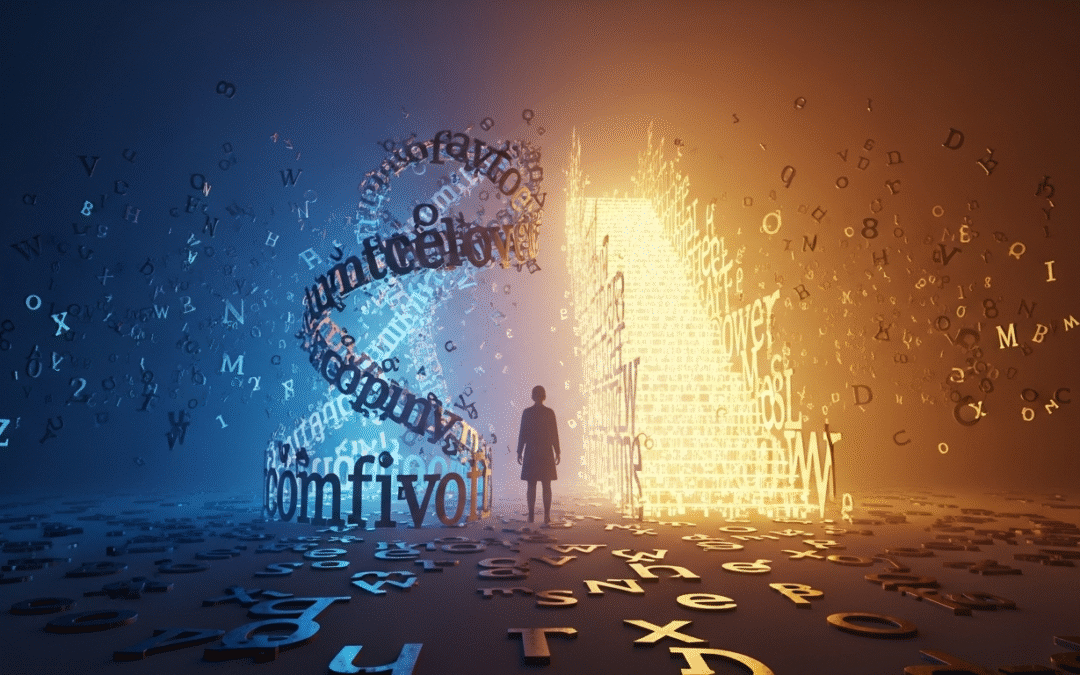Language is our finest tool and our deadliest trap. Language is what makes us capable of loving, building states, writing poetry, and shaping the future. Language is what holds us in civilization. But lurking behind its use and beauty is an icy paradox: Do words liberate the mind by giving it form, or enslave us, reducing the infinite to dense, binary exclusions?
Language, insofar as it exists, stimulates. When a baby cries, it is language that makes sense out of brute sound: “I am hungry,” “I am afraid,” “I would be comforted.” Words enable us to mean one another better than by conjecture, to build worlds together. A lover’s assurance or a philosopher’s speculation is only made possible because language makes inner worlds public. It is a ladder upon which thought ascends into light.
But once we climb to that ladder, we discover that the rungs of it have limits. All words convey meaning, but involve limits. To say “tree” is to cut off the uniqueness of each oak, each cedar, each olive and reduce them to a one and the same sign. Words impose limits on every experience. Think of feelings: happiness, sadness, anger. These words essentially allow us to perceive feelings, but circumscribe them. Real feeling is hybrid, multiform, and mutable, but words compartmentalize it. Words also distort in depiction.
Philosophers have battled this conundrum for millennia. Wittgenstein was wont to say that the limits of our language are the limits of our world. If one can’t say it, it drops into silence, wrongly confused with not-being. Mystics have also defined ultimates as “beyond words.” Even in the mundane, we sense this lack: when grief is more than and love more than, we say, “I have no words.” To be without words is truer than to be with them.
And yet, even silence is interpreted by words. To be silent is still to be saying something, indifference, defiance, or awe. We are not so readily locked out of the network of words; they organize our experience of reality. Languages differ in organizing thought: some have dozens, others zero, words for snow; some don’t have a future tense, reorganizing experience of time. Does this not show that language is less about the reflection of reality and more akin to a filter, a cage masquerading as a window?
But we must not make words the barrier. It constricts, to be sure, but it gives rise to more. Metaphor, poetry, and art propel language out, and they are a reminder that words can be more like fragile strings than like unbreakable walls. When a poet says “grief is a river,” she is not closing off grief but opening up the possibilities for how it might be lived. Language restricts and expands, depending on whether we restrict or expand.
Do words light up thought or snarl it? Is the paradox then perhaps unsolvable, to be endured alone? Words light up, yet cast shadow. Words bring into being, yet in bringing into being slay formlessness. Maybe the challenge is not how to avoid using words but how to listen to its doubleness, to speak with it attuned to its boundedness, to speak and hear at once in and between the words.
Finally, language is neither absolute limitation nor absolute freedom. Language is a tool, and as is the situation with tools, the potential is in the hand that holds it.
